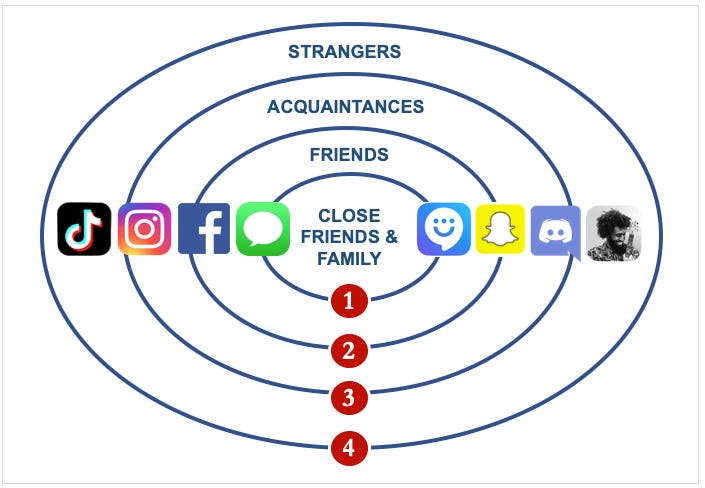
Fission & Fusion in Communities

Instead, good communities like this are decentralized networks of many micro-communities, where there are a few superconnectors that form the fast, efficient “backbone” interconnect of the larger community.
Linus Lee • A cellular theory of communities | thesephist.com
sari and added
Human lives in communities. We join them, we sometimes leave them. Social networks should only be an underlying infrastructure to support our communities. Social networks are not our communities. Social network dies. Communities migrate and flock to different destinations.
Stop Trying to Make Social Networks Succeed
Peter Hagen added
What lies before us maybe isn’t one main mass migration but a dispersal, a disruption of the hegemony as everyone throws up their hands, shouts “OY!” and heads off to a variety of smaller, more bespoke environments: influencer Discords, celebrity or fandom communities, invite-only groupchats, boutique apps like Cohost and Somewhere Good. Of course,... See more
Ryan Broderick • How do we find each other again?
Keely Adler added
Secret Societies, Network States, Burning Man, Zuzalu, and More: Thoughts on New Political Communities
Matt Prewittradicalxchange.org
Success here will come down to implementation details. The incentive structure, funding sources, size, goals, moderation approach, and community management philosophy of these networks will determine their long term viability as both businesses and communities. Whether coming at it from the angle of social media, brand, or content creator, building... See more
Toby Shorin • Come for the Network, Pay for the Tool
sari added

sari added
I think the right way to build a large community is to build a well-connected, collaborative body of many small, intimate micro-communities, the way small cells glob together with quick interconnects to form larger bodies.
Linus Lee • A cellular theory of communities | thesephist.com
sari added